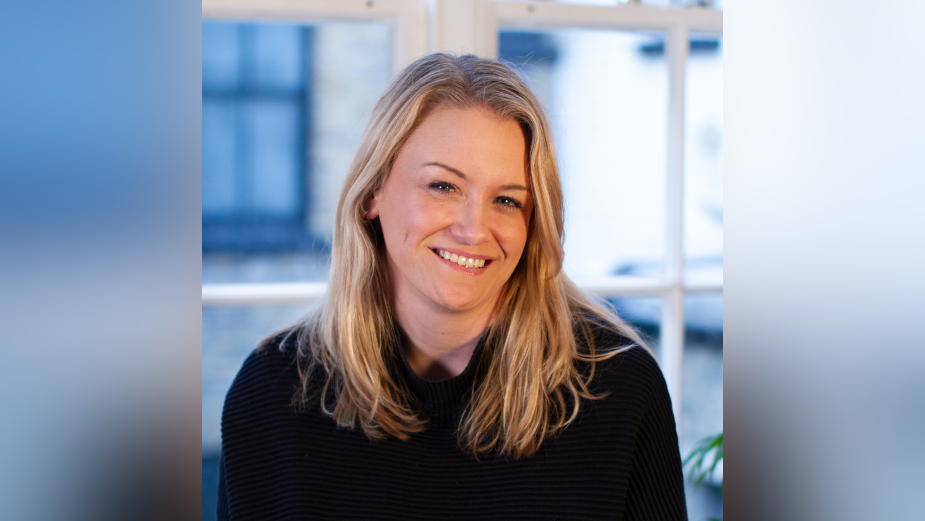
Planning for the Best: Kim Walker on Being a Strategic Shapeshifter

Kim Walker is a strategic shapeshifter.
Her almost 20 year career has spanned research and insight agencies Kantar Millward Brown and Nunwood KPMG, client-side brand and category planning at Mars Chocolate Europe and Bacardi Global and now creative agencies, where she has found her strategic spiritual home.
Kim was previously Joint Head of Strategy at The Brooklyn Brothers, a Campaign Top Three Agency of the Year and is now strategic partner at Harbour, an independent communications consultancy.
Kim’s experience spans global FMCG, alcohol, luxury, automotive, finance and lifestyle brands. Personally recognised by Campaign as an industry star player in 2020, Kim’s passion is for finding behavioural insights to fuel creative work that get people talking and get brands growing.
LBB> What do you think is the difference between a strategist and a planner? Is there one?
Kim> There’s an element of ‘call me what you want, as long as you call me’ about this question.
I get called a strategist or a planner interchangeably and I don’t get too precious about job titles.
I’ll answer to either, but my humble point of view is that the people who do my job and do it well, are strategists not planners.
Strategy is about making choices. Choices about what to do, how to do it and most importantly, why to do it. Sometimes those choices are hard, as you have to walk away from things that could potentially be interesting, because you can’t do everything. Do everything, achieve nothing. Strategists have to kill their darlings.
The term ‘planner’ only talks to a small part of the job, which is executing those strategic choices once you’ve made them. Arguably planning is the easy bit once you’ve figured out what choices you need to make.
LBB> And which description do you think suits the way you work best?
Kim> I describe myself as a strategist. Because I make choices. I create business, brand, creative and communications strategies for clients, which are choices about what they should do next. And personally, the strategy bit is the bit I enjoy the most. Mulling over the big meaty challenges and figuring out the problem before you figure out how best to get to the answer.
LBB> We’re used to hearing about the best creative advertising campaigns, but what’s your favourite historic campaign from a strategic perspective? One that you feel demonstrates great strategy?
Kim> I believe the best campaigns are the ones I hear about from my friends, rather than the ones I read about in industry press. Because that means they are campaigns that have really managed to get people to notice them, to feel something and to feel enough to want to tell other people about them.
You only get this kind of response if the strategy is sharp. They aren’t typically just pretty shiny adverts on the telly but things that brands do in the real world that really show people what they care about.
A great example is the Bodyform Libresse work. Celebrating women, not just talking about periods. Embracing diversity, not conformity. Taking on taboos in a positive and meaningful way to create cultural change. Using a plethora of creative techniques including metaphor, illustration and depictions of reality. And now behaving in line with this ethos – with a pain museum, a pain dictionary and the launch of period pants.
More recently – I’ve loved the BBC ‘This is our BBC’ montage idea because it made me fall back in love with the Beeb, by celebrating the very reason it exists.
LBB> When you’re turning a business brief into something that can inform an inspiring creative campaign, what do you find the most useful resource to draw on?
Kim> My team. Within Harbour and within the wider Harbour Collective. There is no substitute for a good chat about what we’re all excited about in life to help fuel the start point for new ideas. All of my best strategies have been born out of interesting chats. Particularly with my strategy partner, Kev Chesters, who is Rain Man-like in his ability to recall brilliant cultural references. Definitely not chats exclusively with strategists but with anyone who has a point of view on the world (which is everyone).
LBB> What part of your job/the strategic process do you enjoy the most?
Kim> The Aha moment. When you realise you’ve got something so beautifully simple and extremely powerful that you want to go home and tell your mum about it. (Although of course, she wouldn’t care, because very few people in my real life care about what I do for a job). So you settle for telling the creative team or your client and hope they’re as excited about it as you are.
LBB> What strategic maxims, frameworks or principles do you find yourself going back to over and over again? Why are they so useful?
Kim> There are so many I’ve picked up along the way, but there are four main ones that I come back to every single day.
“Memories are fragile, brands are substitutable, reach is king.”
Byron Sharp usefully reminded me that people don’t care about brands the way marketers do.
“Feel lots, buy lots. Feel nothing, buy nothing.”
John Kearon at System 1. Usefully reminding me that people don’t buy the rational argument for anything, let along anything they see in advertising.
“Make things people want, not make people want things.”
From a wise person at PHD. A useful reminder of why I get up every day and put the work in.
“Notice, Remember, Understand.”
From my days at Mars Chocolate, one of the most creatively effective companies in the world. Useful to keep things simple when I’m final checking the executions of ideas are going to have the impact we want in the world. If executions are easy to notice, to remember what brand they’re for and the message is clear – well we’ve done a marvellous job of not getting in our own way.
LBB> What sort of creatives do you like to work with? As a strategist, what do you want them to do with the information you give them?
Kim> Good ones.
Good creatives are ideas people. Which means they are collaborative, open to the abstract, experts in their craft and passionate about making ideas come to life. They might be more interested in the words or the aesthetic in execution, but their passion comes from the kernel of the idea itself.
In that way, strategists and creatives are two sides of one coin, united by the idea, specialist in how they shape and bring that idea to life. Equal partners in the success of the agency’s output.
I am most proud as a strategist when my input leads to a really good discussion that the creatives can build from. And then we keep building together until we’re collectively happy the idea is as strong as it can be.
LBB> There’s a negative stereotype about strategy being used to validate creative ideas, rather than as a resource to inform them and make sure they’re effective. How do you make sure the agency gets this the right way round?
Kim> The creative process isn’t a baton pass between strategy and creative, it’s a continual sense of partnership from start to finish. At Harbour, we’re a small yet mighty senior team and we all get involved throughout the process so the baton is passed between strategy and creative the whole way through.
I believe the only way this stereotype would happen in an agency is where the baton passes from strategy to creative and then back again in a more linear fashion. Where strategists aren’t in the middle of the creative process and are just bought in at the end to finalise the deck for the client.
Strategists should be constantly inspiring and validating the creative team’s thought process the whole way through. Anything else is just lazy and old school strategic behaviour.
LBB> What have you found to be the most important consideration in recruiting and nurturing strategic talent? And how has Covid changed the way you think about this?
Kim> I think recruitment of strategists comes down to three things, regardless of their level of seniority: curiosity, confidence and cultural appetite.
If I can see that I can build a person’s ability around these three pillars, and that they value those three things, I know they can be a great strategist and a great member of my team.
And that’s true for nurturing strategic talent as well. You have to give people time to build these behaviours into the work they’re doing every day.
Covid only reinforced this for me as I saw so much strategic talent around me start to burn out. As strategists weren’t able to make the time to get curious, weren’t getting the praise and recognition they needed to feel confident and weren’t topping up their cultural energy by seeking new sources of inspiration.
LBB> In recent years it seems like effectiveness awards have grown in prestige and agencies have paid more attention to them. How do you think this has impacted on how strategists work and the way they are perceived?
Kim> I’m not sure we would put the hours in that we do as an industry if we didn’t think it was going to have an impact on the world in some way. Would we? I think that’s not just true of strategists but of everyone involved. If you can’t measure it, how can you objectively know that it was worth all your time and effort?
Having more emphasis on effectiveness as an industry just helps us reinforce the value of this in agency culture; so we don’t lose our way and get lost in the rabbit holes that don’t impact the work’s impact. I was trained as a researcher in my first job so effectiveness has always been at the core of the way I think about output. And from my time client-side, I think it’s right that clients and their agencies in turn prize effectiveness above all else, in order to drive business growth.
LBB> Do you have any frustrations with planning/strategy as a discipline?
Kim> My frustration is when people stereotype us as just smart thinking people, not creative people. Brilliant strategists are creative too. It drives me mad when strategists play up to that stereotype by using unnecessarily big words, acronyms and complicated frameworks to make themselves look smarter.
LBB> What advice would you give to anyone considering a career as a strategist/planner?
Kim> Three things.
Do some soul searching. Is being curious a core value of yours? If not, it won’t be right for you. In fact, it will drive you mad.
Understand the role you like to play in the story. Strategists are team players, so if you want to be the solo hero that saves the day, go find another role.
Finally, do your research. Research is a core skill of a strategist so start as you mean to go on.













